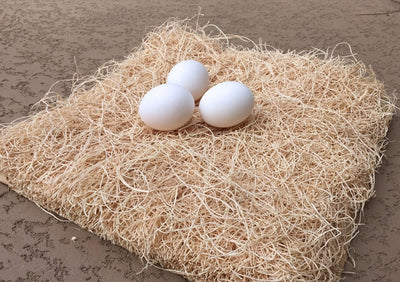If you consider raising chickens, the important thing to know is that their home needs to be safe. A good coop keeps them comfy and far from danger. But building a strong coop is very important. It should protect them from bad weather and hungry animals. Without a good coop, chickens can get sick or hurt. This guide will show what a chicken coop needs to keep them safe. It will help you start your backyard chicken-keeping journey the right way.
Understanding the Basics of Coop Design
When making a coop, think what chickens really need. They need space so they can move freely. Fresh air is also essential for them. Safety matters too, to keep them from danger. Without these, they won’t stay happy or healthy. A good coop keeps them safe from dangers. Make sure the coop is easy to clean. This helps stop disease and keeps chickens strong. Dirty coops can cause sickness fast. Cleaning often makes a big difference.
Keeping predators out is very important. Use strong materials to block them. Hardware cloth or chicken wire works well. Gaps should be small, no bigger than one inch. This stops raccoons, foxes, and other animals from getting in.
Choosing the Right Materials
The materials you pick for your coop matter a lot. They affect how strong and safe it will be. Using natural stuff like wood makes it warm and cozy. But wood must be treated, or it won’t last long.
Besides wood, metal parts like hinges and latches must be strong. A sturdy lock on the coop door keeps predators out. If not locked well, they might break in. Some chicken owners use old materials to save money. This also helps the environment by reducing waste.
Ensuring Proper Ventilation
Proper ventilation is very important for a healthy coop. Without it, ammonia builds up from chicken droppings. This can cause breathing problems in your flock. Windows and vents should let fresh air in. But they must also keep predators out. Covering them with hardware cloth stops unwanted visitors.
Good ventilation also helps control the temperature inside. This keeps chickens comfortable in any weather. In cold places, insulation helps keep the coop warm. In hot areas, more vents help cool it down.
Providing Adequate Lighting
Lighting is important for chickens’ health and productivity. Natural light is best. But not all coops get enough sunlight. In that case, artificial light can help. Winter months make this even more important. Days get shorter, and chickens need enough light. Some people use LED lights since they save energy. They also copy natural daylight patterns.
This helps keep the chickens’ internal clocks steady. It keeps them healthy and laying eggs regularly. A timer can turn the lights on and off. This makes it feel like sunrise and sunset.
Creating a Safe and Comfortable Environment
Creating a safe home for chickens is more than a coop. They need space to move and act natural. Perches help them roost, and nests let them lay eggs. Give each chicken at least 3-4 square feet inside.
The coop should also keep them safe from bad weather. Insulation helps in winter and cools them in summer. Some chicken owners add a covered run outside. This lets chickens explore and exercise safely during the day.
Maintaining Cleanliness and Hygiene
Keeping the coop clean is very important for chickens. Dirty coops can make them sick. Cleaning often helps keep them healthy and happy. You need to remove droppings and change the bedding. Do this regularly so the coop stays fresh. A good coop design makes cleaning easier. Things like removable nesting boxes help a lot.
If you don’t clean, ammonia can build up. This can harm chickens and make them sick. It’s best to follow a cleaning schedule. Clean the coop every week. Change all the bedding every few months. This keeps the coop safe and fresh for your birds.
Adding Predator-Proof Features
Adding predator-proof features in your coop is very important. It helps keep your flock safe from danger. Use strong materials for the walls and roof. Weak materials can break easily. Make sure all openings are covered with hardware cloth. Chicken wire is not strong enough. Predators can tear through it. The coop door must also be secure. Use a latch that animals cannot open. Some predators are smart and can figure out weak locks.
Some chicken keepers take extra steps for safety. They use electric fencing around the coop. A covered run also helps protect chickens. These extra layers stop foxes and coyotes from attacking.
Building a safe and warm coop takes some careful thought. Chickens need the right space to stay healthy and happy. Good airflow, enough light, and strong security all matter. Making sure predators stay out is also very important. Strong walls and proper locks help keep your flock safe. With the right setup, chickens live comfortably and lay eggs well. A cozy home means they feel secure and relaxed.

